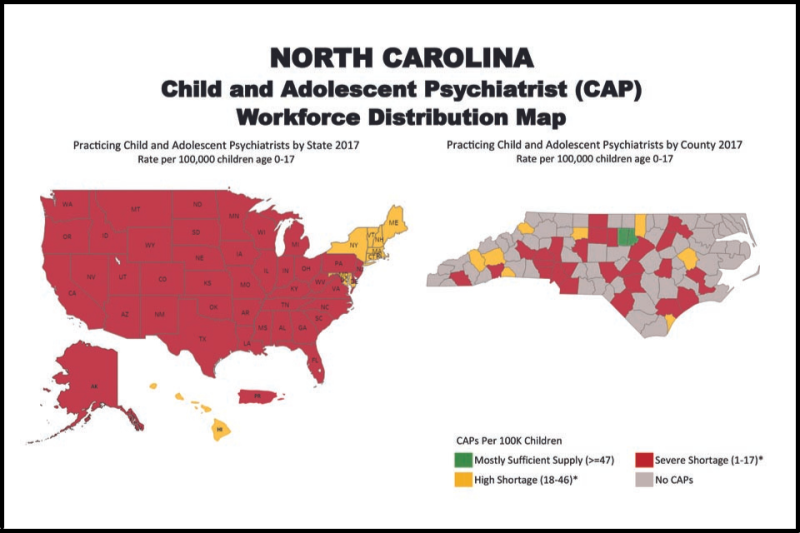
When caring for pediatric patients at Duke Primary Care Butner-Creedmoor, Physician Assistant Anna White stays alert for any symptoms that could indicate an untreated behavioral health condition. Ongoing migraines, difficulty sleeping and uncontrolled chronic health conditions prompt White to dig deeper. And she's more comfortable doing so thanks to the North Carolina Psychiatry Access Line (NC-PAL).
“In general, primary care providers do not get a lot of pediatric mental health training,” White, PA-C, MPH, said. “That can make you hesitant to treat patients for behavioral health conditions. But thanks to the support I receive from the NC-PAL hotline, I'm more confident providing mental health care and equipped to help my patients in the future.”
NC-PAL is a free provider-to-provider consultation line and education program available to all clinicians across the state for questions about behavioral health or psychiatric medication management for their pediatric and perinatal patients. It began in 2017 as a pilot program in six counties. In 2018, the North Carolina Department of Health and Human Services received two grants from the Health Resources and Services Administration to expand NC-PAL statewide and integrate a perinatal consultation program called NC Maternal Mental Health MATTERS. NC Maternal Mental Health MATTERS is in partnership with UNC.
The consultation line is open Monday through Friday from 8 a.m. to 5 p.m. To date, NC-PAL has received a total of 1,025 pediatric calls and 522 perinatal calls from 617 enrolled providers across 48 NC counties. Nicole Heilbron, PhD, and Gary Maslow, MD, MPH, are co-directors of the Division of Child & Family Mental Health & Community Psychiatry at Duke. They are also co-program leaders for NC-PAL.
“NC-PAL not only helps primary care providers feel comfortable providing behavioral health care, it also expands the number of options for patients, especially in rural counties that may have more limited access to behavioral health care services.”
—Nicole Heilbron, PhD
“NC-PAL not only helps primary care providers feel comfortable providing behavioral health care, it also expands the number of options for patients, especially in rural counties that may have more limited access to behavioral health care services,” Heilbron said. “We are fortunate at Duke to have psychiatrists, psychologists and social workers. Through NC-PAL, we can expand the reach of our expertise.”
In addition to the hotline, there is also an educational component. NC-PAL partners with the REACH Institute to deliver the Patient-Centered Mental Health in Pediatric Primary Care Mini-Fellowship. As of Aug. 1, 2021, 101 pediatric providers, including White, have been trained in the REACH curriculum. Maslow said increasing the number of providers who can offer care is important as 15 percent of children have a behavioral health condition.
“It's powerful to be able to magnify behavioral health care beyond the specialist setting,” said Maslow. “Many times, if you can intervene early, you can prevent the progression of a condition. The goal is to help children and their parents thrive.”
This article was originally published in Inside Duke Health and was republished with permission.